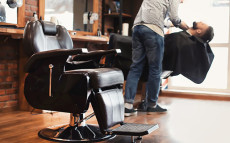- pathfindersAI
- Job Profile
Makeup Artists, Theatrical and Performance
Summary
Theatrical and Performance Makeup Artists: A Detailed Job Description
What They Do
The world of theatrical and performance makeup artistry is one that combines creativity, skill, and an eye for detail to transform actors into their characters, on stages and screens alike. Makeup artists in this field are responsible for designing and applying makeup to performers to enhance their appearance for various productions, including theater, film, television, and live events. Their work not only enhances the aesthetic appeal of a performance but also plays a crucial role in defining characters and setting the tone for the narrative being portrayed. This profession requires a deep understanding of artistic principles, facial anatomy, and the unique requirements of different performance environments.
Job Responsibilities
Makeup artists for theatrical and performance settings undertake a plethora of responsibilities that extend beyond mere makeup application. They start by consulting with directors, costume designers, and performers to understand the visual requirements of a production. This involves creating face charts and preliminary makeup designs for approval. Once designs are finalized, makeup artists procure and prepare the necessary materials, including specialized products like prosthetics, wigs, and other costume makeup.
On performance days, makeup artists execute their designs, which can range from simple beauty enhancements to complex special effects makeup. They must be adept at applying makeup quickly and accurately, often under tight time constraints. Additionally, they may be required to perform touch-ups and maintenance throughout performances to ensure actors look consistent under various lighting conditions and through physical activity or environmental factors. An essential part of their role also involves teaching performers how to apply and remove makeup, as well as ensuring proper hygiene to protect skin health.
Essential Skills
To excel as a makeup artist in the theatrical and performance realm, one must hone a diverse set of skills that combine artistic ability with technical proficiency. First and foremost is a strong artistic sense, including an understanding of color theory, shading, and texture. Creativity and innovation are essential in developing unique looks that align with a director’s vision.
Technical skills in makeup application, including proficiency with a variety of tools and materials like foundation, concealer, brushes, and airbrushing equipment, are fundamental. Familiarity with special effects techniques, such as the application of prosthetics and body paint, is often required. Attention to detail is critical, as even minor mistakes can be glaring under the scrutiny of stage lights and high-definition cameras. Additionally, makeup artists need excellent communication and collaboration skills to work effectively with other members of the production team.
Educational Pathways
Becoming a successful makeup artist in the theatrical and performance industry does not always require a formal education, but many pursue specialized training to enhance their skill set and employment prospects. High school students interested in this career can start by taking courses in art, theater, and cosmetology to build a solid foundation. Postsecondary education options include degrees or certificates in cosmetology, makeup artistry, or theater arts, which offer in-depth training and practical experience.
Specialized schools and programs that focus on theatrical and special effects makeup provide hands-on learning opportunities and professional networking. Moreover, internships and apprenticeships with established makeup artists or production companies are invaluable for gaining real-world experience and industry connections. Continuous learning through workshops and staying updated on latest trends and technologies in makeup artistry is also critical for career advancement.
Career Prospects
The career prospects for makeup artists specializing in theater and performance are diverse and can be quite rewarding for those with passion and dedication. Employment opportunities can be found in theaters, film and television studios, production companies, and event planning services. Some makeup artists choose to work freelance, offering their services to a variety of clients and productions, which allows for flexibility and the potential to build a unique portfolio.
Job outlook varies based on location, industry demand, and changes in production trends. While the entertainment industry can be highly competitive, skilled artists who have built a strong reputation and network can find steady work. Compensation for makeup artists ranges widely based on experience, specialization, and the scope of the project, with opportunities for higher earnings in film and high-profile productions.
Conclusion
Theatrical and performance makeup artists play a pivotal role in bringing characters and stories to life, merging artistic talent with technical expertise to create visually compelling productions. Their responsibilities are comprehensive, from initial design to final application, requiring a blend of creativity, precision, and collaboration. Although the educational pathways may vary, aspiring artists can benefit from targeted training and practical experience to build successful careers. With robust demand in the entertainment industry, the future holds promising opportunities for those who are committed to mastering the craft of makeup artistry.
Video
Compensation
Similar Occupations
In this area you will find other occupations that are close to the one you were viewing in tasks, knowledge and work environment. If the primary job profile you are viewing isn't quite to your liking, take a look around and see what else is available.
Basic and Premium Accounts have more alternative occupations available than the Free account.

Barbers - 39-5011.00
A barber is a professional who specializes in cutting, styling, and grooming hair, typically for men. They also provide additional services such as trimming beards, shaving, and offering scalp treatments to enhance overall appearance and hygiene.
-
$36,150/yr
Median Pay -
15,990
Number of Jobs

Costume Attendants - 39-3092.00
A Costume Attendant manages and maintains costumes for theatrical productions, ensuring they are clean, repaired, and correctly fitted for each performance. They also assist actors with quick changes and costume adjustments backstage, contributing to a smooth and efficient show.
-
$52,370/yr
Median Pay -
6,300
Number of Jobs